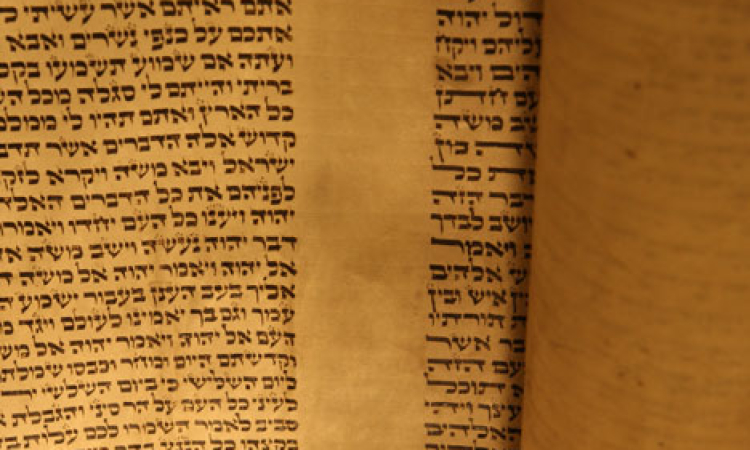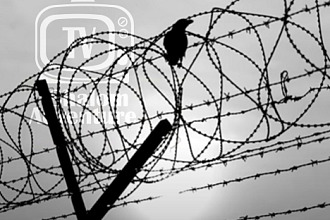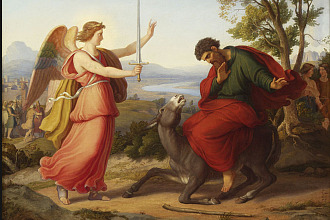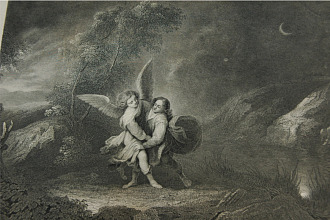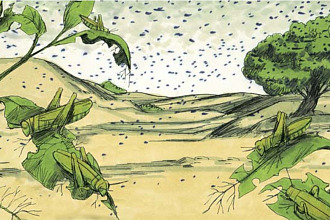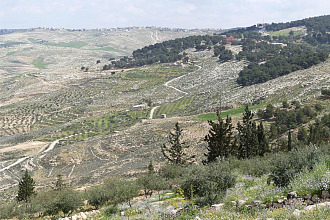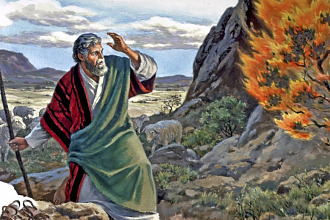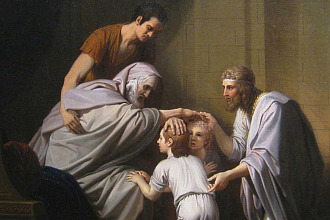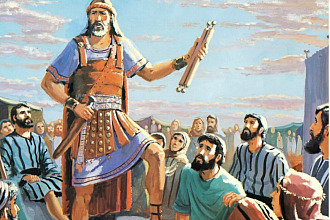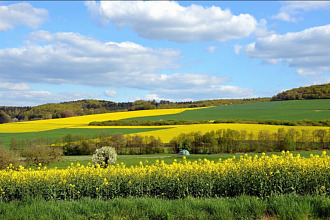Parasha for the Week: Acharei Mot: Leviticus 16:1 – 18:30
Haftarah for the Week: Ezekiel 22:1 – 22:19; Amos 9:7 - 15
Besorat Yeshua: Mark 2:1 - 17
Overview : Acharei mot
G-d instructs the kohanim to exercise extreme care when they enter the Mishkan. On Yom Kippur, the kohen gadol is to approach the holiest part of the Mishkan after special preparations and wearing special clothing.
He brings offerings unique to Yom Kippur, including two identical goats that are designated by lottery. One is "for G-d" and is offered in the Temple, the other is "for Azazel" in the desert.
The Torah states the individual's obligations on Yom Kippur: On the 10th day of the seventh month, one must afflict oneself.
Consumption of blood is prohibited. The blood of undomesticated beasts must be covered.
The people are warned against engaging in the wicked practices that were common in Egypt. Incest is defined and prohibited. Marital relations are forbidden during a woman's monthly cycle. Homosexuality, bestiality and child sacrifice are prohibited.
"Forgiveness on Yom Kippur"
The Torah states, "For on this day (referring to Yom Kippur) you shall receive atonement to purify you for all your transgressions, before the Almighty you shall be purified" (Leviticus 16:30). We can ask the question: does Yom Kippur atone for ALL transgressions?
The Sages in the Talmud (Yoma 85b) clarify that Yom Kippur atones for transgressions between man and the Almighty. However, with regards to transgressions between man and man, Yom Kippur can only atone if a person first attains forgiveness from those whom he has offended or harmed. This includes returning what was taken and possibly financial recompense as well as asking for forgiveness.
From this principle, we see the importance of being careful not to cause other people harm, either financial, physical or emotional.
"Holiness of G-d's People"
Do not imitate the practice of the land of Egypt in which you dwelled; and do not imitate the practice of the land of Canaan to which I bring you, and do not follow their traditions." (Leviticus 18:3) The common theme running through the parashot of Acharei Mot, Kedoshim and Emor is the holiness of G-d's people and the need for its preservation and protection. In Acharei Mot, we are enjoined not to behave in the depraved manner of the Egyptians and Canaanites (Leviticus 18:3). The verse that concludes this parasha and sums it up is: "And you shall guard My observances." (Leviticus 18:30).
Haftara: Ezekiel 22:1 – 22:19
Parasha: It may seem strange that we speak about Yom Kippur, the day of Judgement, during Passover, but that is how the reading of the parasha worked out this year. The LORD said to Moses: Tell your brother Aaron not to come just at any time into the sanctuary inside the curtain before the mercy seat that is upon the ark, or he will die; for I appear in the cloud upon the mercy seat. (Leviticus 16:2).
Haftara: In the text of the haftara, we have a story of judgment. The prophet is called by G-d to judge the "bloody city". The word of the LORD came to me: You, mortal, will you judge, will you judge the bloody city? Then declare to it all its abominable deeds. You shall say, Thus says the Lord GOD: A city! Shedding blood within itself; its time has come; making its idols, defiling itself. You have become guilty by the blood that you have shed, and defiled by the idols that you have made; you have brought your day near, the appointed time of your years has come. Therefore I have made you a disgrace before the nations, and a mockery to all the countries." (Ezekiel 22:1-4).
G-d is going to scatter His people among the nations. I will scatter you among the nations and disperse you through the countries, and I will purge your filthiness out of you. (Ezekiel 22:15) This judgment of Israel is recorded also to illustrate in what situation we could be as G-d's people today. How do we act every day? What is our relation with the Word of G-d? Which relationship do we have with G-d? Are we the people of the Bible and a people of prayer? Yom Kippur is every day for us, we are waiting for the coming of the Mashiach from the heavenly sanctuary, in the same way that the High Priest, at the end of the Yom Kippur came out from the tabernacle, to assure G-d's people that they have received forgiveness. Our G-d is a God of love, he is always ready to forgive us if we come back to Him in true and sincere repentance. But for true repentance it is necessary to ask God to forgive our sins and also to ask our neighbor to forgive what we have done wrong to them.
Besorat Yeshua: Mark 2:1 - 17
Parasha: In the text of the Parasha we have many commandments, which invite us to have a holy life. The people of Israel is Holy and must demonstrate this holiness in their life.
Besorah: We have the perfect example of holiness in the life of Yeshua. That’s why the people of Israel who were in contact with him discovered who was Yeshua, they loved him, loved his teaching and loved his deeds. In our Besorah we see Yeshua arriving in Capernahum, in the house of Peter and many people came to the house to see him, to listen to his teaching. When he returned to Capernaum after some days, it was reported that he was at home. So many gathered around that there was no longer room for them, not even in front of the door; and he was speaking the word to them. (Mark 2:1-2). People from Capernahum were sure that Yeshua can heal every sickness, that’s why a group of friends came to Y’shua with a paralytic. Then some people came, bringing to him a paralyzed man, carried by four of them (Mark 2:3). They were people of faith, a great example for us. What Yeshua said to the paralytic is in connection with forgiveness (theme of Yom Kippur), “When Yeshua saw their faith, He said to the paralytic, “Son, your sins are forgiven.” (Mark 2:5) In this act it is demonstrated that as the Mashiach he had the power to forgive sins.

